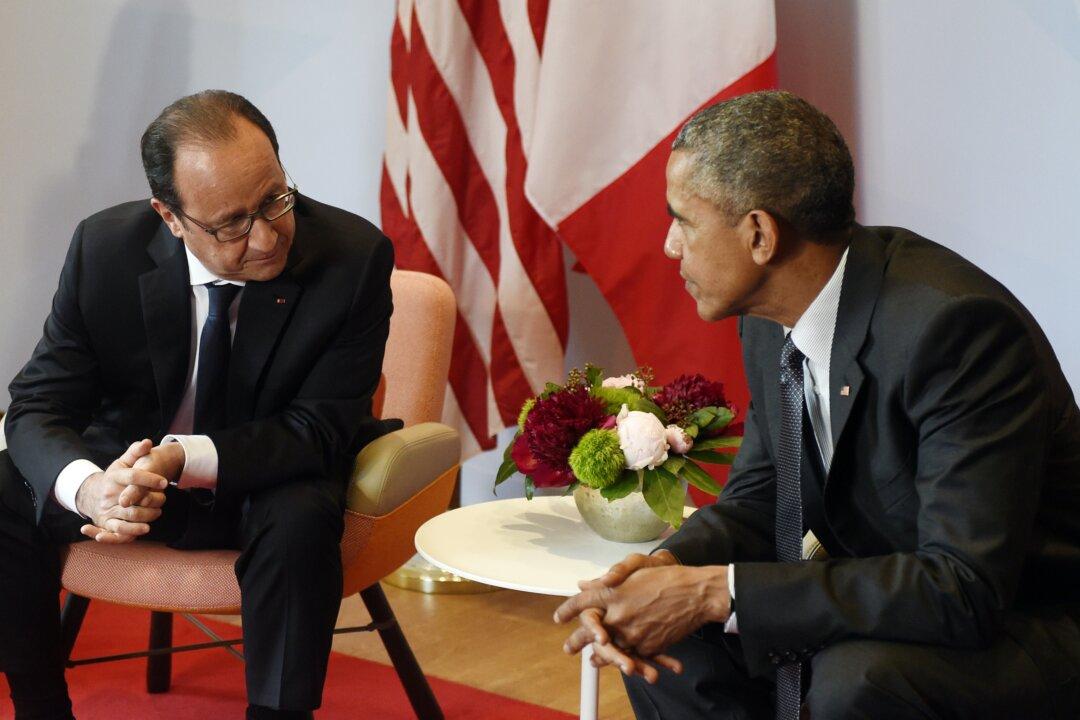WASHINGTON—President Barack Obama will stand in solidarity with French President Francois Hollande at the White House on Tuesday, 11 days after the Islamic State (ISIS) launched a series of deadly attacks in Paris. But Hollande is likely to leave Washington without firm backing for his call to bring Russia into a new coalition to fight the extremists.
Hollande’s visit to Washington is part of a diplomatic offensive to get the international community to bolster the campaign against ISIS extremists. The group is believed to have been behind the Nov. 13 attacks that killed 130 people in Paris, as well as separate attacks in Lebanon and Turkey and the downing of a Russian airliner in Egypt.
As ISIS expands its reach outside its bases in Syria and Iraq, Obama is facing increased pressure at home and abroad to ramp up U.S. efforts to destroy the extremists. So far, Obama is resisting calls to either change or significantly ramp up his approach, and instead is focused on getting other countries to offer more counterintelligence, humanitarian and military assistance.
“The United States is certainly pulling more than our own weight,” White House spokesman Josh Earnest said. “And we believe that there is more that can be done if countries are willing to contribute additional resources.”
The U.S. campaign has centered largely on launching airstrikes, while training and assisting security forces on the ground in Iraq. Efforts to train and equip moderate rebel groups in Syria have struggled, though Obama has authorized the deployment of 50 special operations forces to the country to jumpstart the program.
France has stepped up its airstrikes following the Paris attacks, relying in part on U.S. intelligence to hit targets in Raqqa, ISIS' stronghold in Syria. British Prime Minister David Cameron said on Monday he would seek parliamentary approval this week for Britain to begin airstrikes as well.
Hollande wants the U.S.-led coalition to start cooperating with Russia, which is also launching airstrikes in Syria. While Russian President Vladimir Putin says his country is targeting ISIS extremists, the U.S. contends Moscow is going after rebels fighting Syrian President Bashar Assad, a Kremlin ally.
Last week, Hollande called for the U.S. and Russia to set aside their policy divisions over Syria and “fight this terrorist army in a broad, single coalition.” But his office acknowledges that “coordination” sounds like a far more realistic goal.





